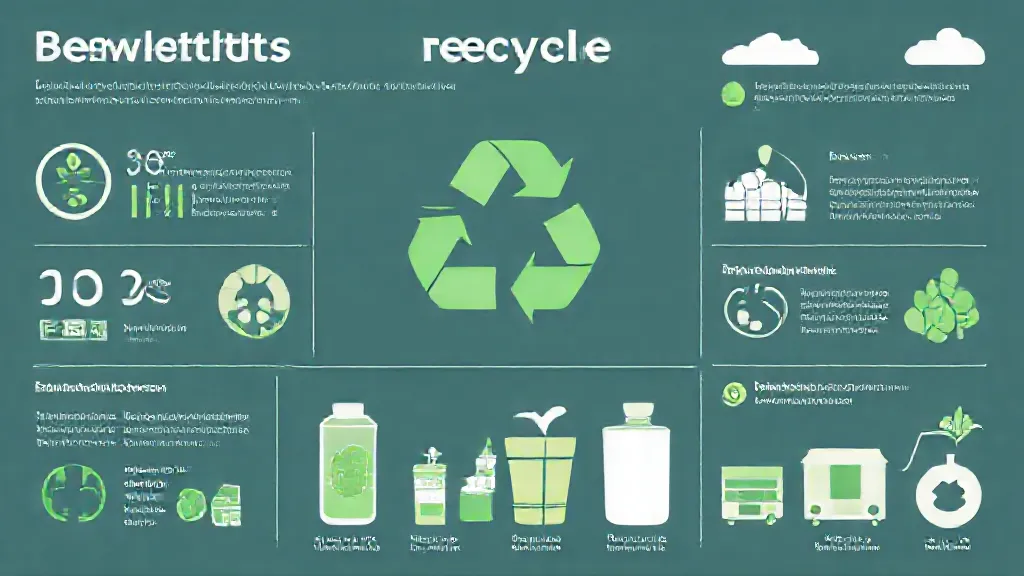Recycling has emerged as a pivotal component in the global effort to mitigate environmental degradation and combat climate change. As waste management practices evolve, understanding where recycling has the most significant impact becomes crucial for policymakers, businesses, and individuals alike. This article delves into the various sectors and materials where recycling proves to be most beneficial, highlighting the environmental, economic, and social advantages that accompany effective recycling initiatives.
The Environmental Benefits of Recycling
One of the most profound impacts of recycling is its ability to conserve natural resources. By recycling materials such as paper, glass, metals, and plastics, we reduce the need for virgin resources, which often involve environmentally damaging extraction processes. For instance, recycling one ton of paper can save approximately 17 trees, 7,000 gallons of water, and 4,100 kilowatts of electricity.
These statistics illustrate how recycling not only preserves our forests but also diminishes the carbon footprint associated with manufacturing processes.
Recycling and Energy Conservation
The energy savings from recycling are another critical area where its impact is felt. The production of new materials from raw resources typically requires significantly more energy than producing them from recycled materials.
For example, recycling aluminum saves about 95% of the energy needed to create new aluminum from bauxite ore. This energy efficiency translates into lower greenhouse gas emissions, making recycling an essential strategy in the fight against climate change.
Economic Impacts of Recycling
Beyond environmental benefits, recycling also has substantial economic implications.
The recycling industry contributes billions of dollars to the economy and creates millions of jobs. According to the National Recycling Coalition, recycling and reuse activities in the United States alone support over 1.1 million jobs and generate more than $236 billion in revenue annually.
This economic vitality underscores the importance of recycling not just as an environmental initiative but as a driver of sustainable economic growth.
The Role of Community Engagement in Recycling
Community involvement plays a crucial role in the effectiveness of recycling programs. Education and outreach initiatives can significantly increase participation rates in recycling efforts.
For example, cities that implement comprehensive recycling education programs often see a marked increase in recycling rates. Engaging communities through workshops, local events, and school programs fosters a culture of sustainability and empowers individuals to take action in their own households.
Challenges in Recycling: Contamination and Infrastructure
Despite its benefits, recycling faces numerous challenges, particularly concerning contamination and infrastructure.
Contamination occurs when non-recyclable materials are mixed with recyclables, leading to entire batches of materials being rejected. This issue highlights the need for improved public education on what can and cannot be recycled. Furthermore, inadequate recycling infrastructure can hinder effective recycling efforts, particularly in rural areas where access to recycling facilities is limited.
Global Perspectives on Recycling Success
Different countries have adopted various approaches to recycling, with some achieving remarkable success. For instance, Germany's recycling system, known as the "Green Dot," has established a comprehensive framework that mandates producers to take responsibility for the lifecycle of their products. As a result, Germany boasts a recycling rate of over 65%, setting a benchmark for other nations.
Learning from such global examples can help improve recycling strategies worldwide.
Innovations in Recycling Technology
Technological advancements are also transforming the recycling landscape. Innovations such as automated sorting systems, chemical recycling, and advanced material recovery facilities are enhancing efficiency and effectiveness in recycling processes.
These technologies not only improve the quality of recycled materials but also reduce the costs associated with recycling, making it a more viable option for businesses and municipalities alike.
The Future of Recycling: A Circular Economy
Looking ahead, the concept of a circular economy is gaining traction as a holistic approach to sustainability. In a circular economy, products are designed for longevity, repairability, and recyclability, ensuring that materials are continuously reused rather than discarded.
This paradigm shift emphasizes the importance of recycling as a foundational element in achieving sustainable development goals and reducing reliance on finite resources.
In conclusion, recycling has the potential to create significant positive impacts across various sectors. From conserving natural resources and saving energy to stimulating economic growth and fostering community engagement, the benefits of recycling are multifaceted.
By understanding where recycling has the biggest impact, we can better direct our efforts towards more effective waste management practices that contribute to a healthier planet for future generations.
